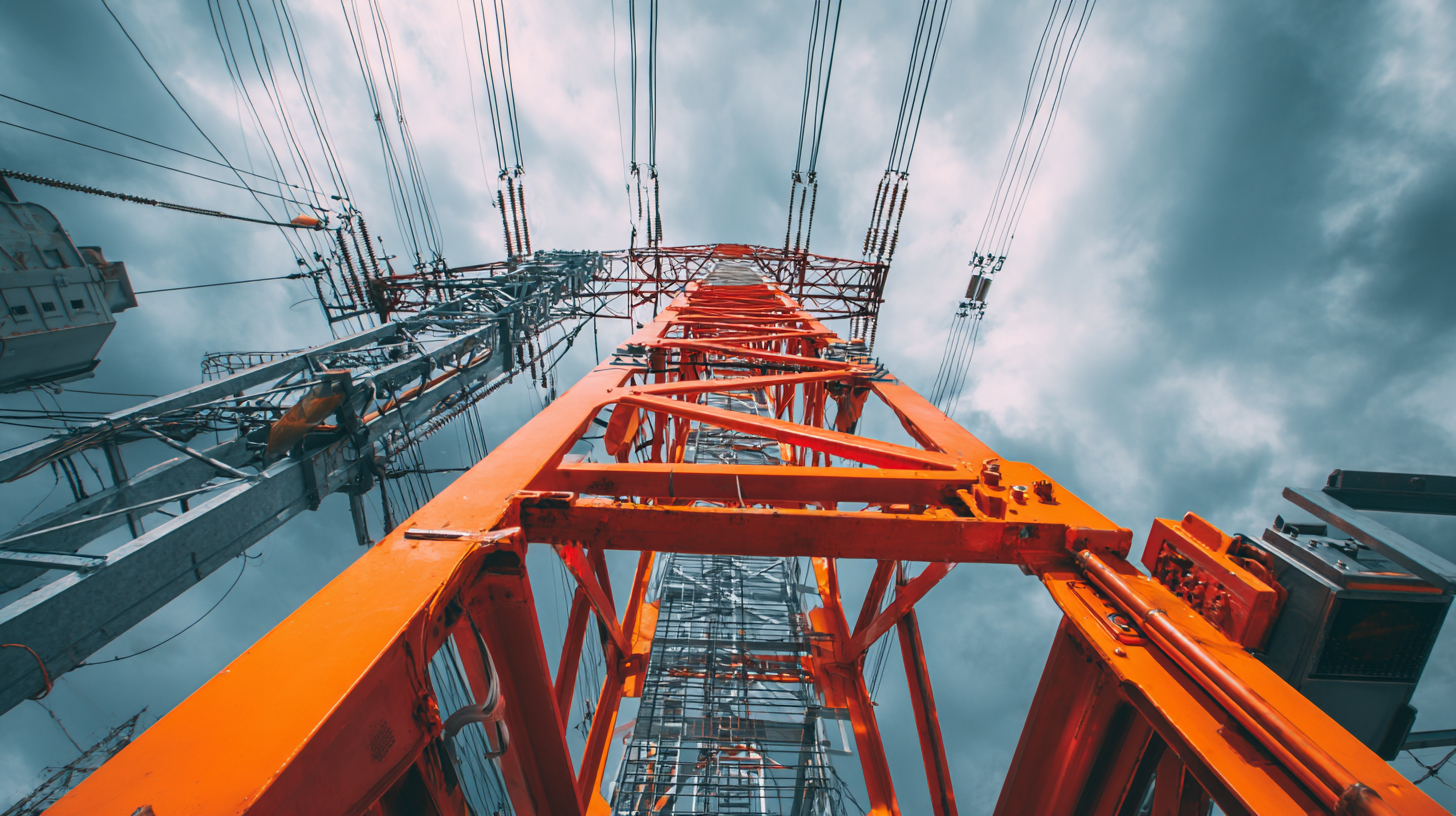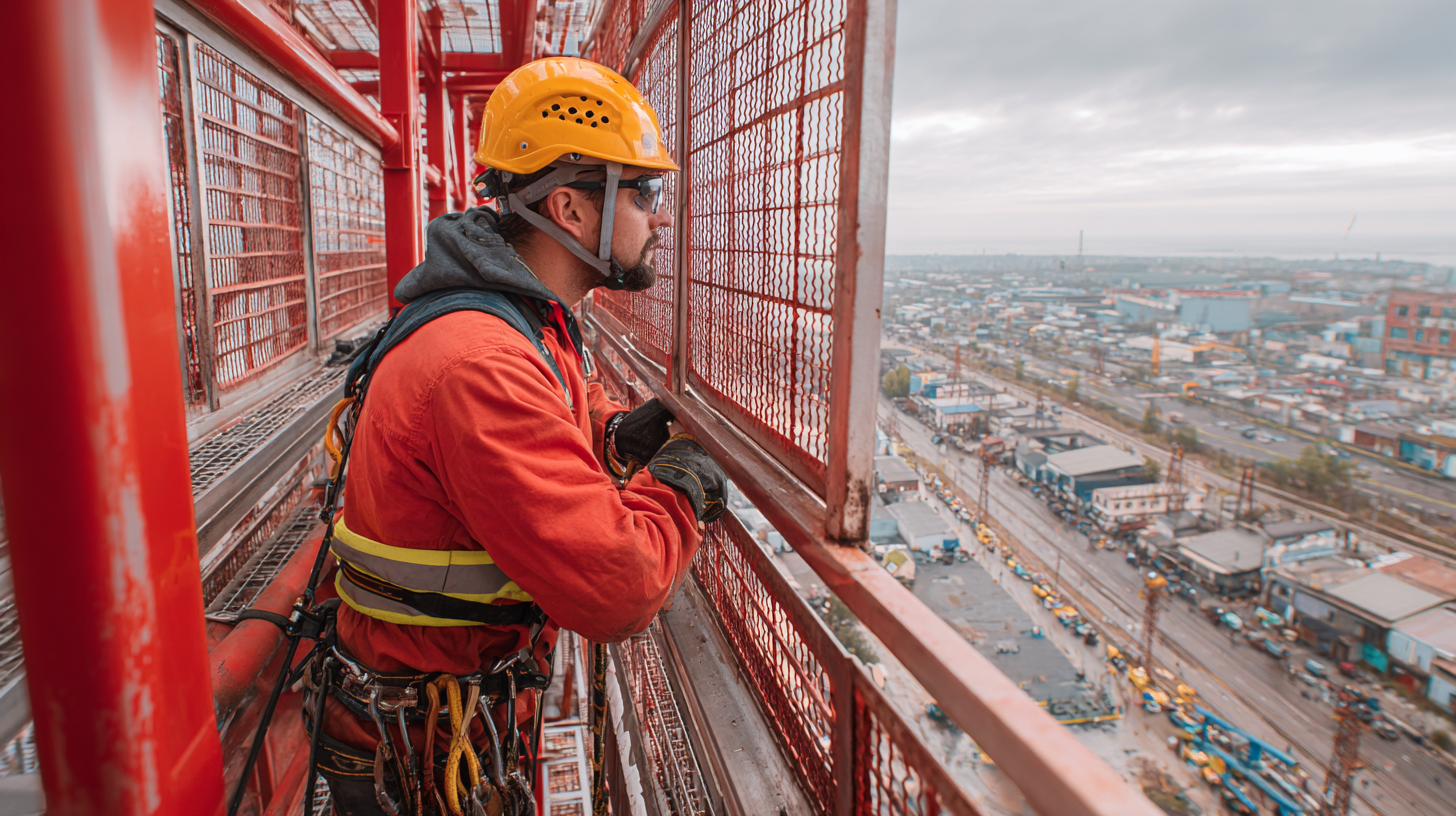Leading Global Manufacturing Power with the Best Hek Mast Climber from China
As the global landscape of manufacturing continues to evolve, efficient and innovative construction solutions have become paramount to maintaining competitive advantage. The Hek Mast Climber, a leading product from China, represents a significant advancement in this industry. According to a recent report by Markets and Markets, the global construction equipment market is projected to reach $202.7 billion by 2027, driven by the increasing need for modernization and efficiency in construction practices.
 The Hek Mast Climber not only enhances worker safety but also boosts productivity by allowing for rapid vertical access to high-rise structures. Its robust design and advanced technology cater to the demands of modern manufacturing, making it a preferred choice among contractors worldwide. In this dynamic environment, integrating such innovative tools into the production workflow is crucial for establishing and maintaining a leading position in the global manufacturing arena.
The Hek Mast Climber not only enhances worker safety but also boosts productivity by allowing for rapid vertical access to high-rise structures. Its robust design and advanced technology cater to the demands of modern manufacturing, making it a preferred choice among contractors worldwide. In this dynamic environment, integrating such innovative tools into the production workflow is crucial for establishing and maintaining a leading position in the global manufacturing arena.
The Importance of Import-Export Certification in the Global Manufacturing Sector
In the competitive landscape of global manufacturing,
import-export certification plays a pivotal role in ensuring compliance and fostering trust among stakeholders.
For manufacturers, possessing the right certifications not only demonstrates adherence to international standards
but also enhances credibility in the eyes of clients and partners.
This is particularly crucial in sectors like construction
and machinery, where safety and quality assurance are paramount.
Tip: Always conduct thorough research on the required certifications pertinent to your industry and target markets.
Engaging with local compliance experts can help streamline the process and avoid potential pitfalls.
Companies looking to source products like Hek mast climbers
from China should prioritize manufacturers who hold relevant certifications. This not only mitigates risks
associated with quality and safety but also facilitates smoother trade processes.
Ensuring that suppliers are compliant with
import-export regulations can lead to more efficient transactions and foster long-lasting partnerships.
Tip: Regularly review and update your knowledge of
certification requirements, as these can change based on evolving regulations and market demands.
Staying informed will give you a competitive edge and help maintain compliance in your global manufacturing operations.
How Hek Mast Climbers Meet International Standards and Certifications
Hek mast climbers have gained significant recognition in the global manufacturing sector, particularly due to their adherence to stringent international standards and certifications. These machines are meticulously designed to enhance safety and efficiency on construction sites, ensuring that operators can perform their tasks with confidence. Hek prioritizes quality control throughout the production process, integrating advanced technology and rigorous testing protocols to meet and exceed global construction norms.
Moreover, Hek mast climbers comply with various international certifications, such as ISO 9001 for quality management systems and CE marking, which signifies conformity with health, safety, and environmental protection standards for products sold within the European Economic Area. This commitment to compliance not only reassures clients of their reliability and safety but also facilitates Hek's expansion into diverse markets. By securing these certifications, Hek demonstrates its dedication to providing high-quality products that cater to the demands of modern construction and the expectations of contractors worldwide.
Global Manufacturing Power: Hek Mast Climbers International Standards
Navigating the Regulatory Landscape for Manufacturing Exports from China
Navigating the regulatory landscape for manufacturing exports from China has become increasingly complex in the wake of significant trade shifts. After the U.S. imposed a blanket tariff on all imports, companies need to carefully assess how these changes impact their export strategies. According to recent industry reports, more than 50% of manufacturing firms in China are now focusing on diversifying their export markets to mitigate risks associated with rising tariffs and shifting trade policies. This strategic pivot not only highlights the necessity for compliance with new regulations but also emphasizes the importance of understanding market dynamics.

As the U.S. tightens export controls, particularly in the semiconductor and technology sectors, manufacturers are confronted with an intricate web of compliance requirements. A recent analysis indicates that about 70% of CEOs acknowledge the critical role of adapting to these legal frameworks in securing their supply chains. Furthermore, China's policy-driven initiatives aimed at fostering innovation and demand in key industries signal a proactive approach to maintaining its manufacturing prowess. With the right insights and adherence to the evolving landscape, companies can strategically position themselves for success in an increasingly competitive global market.
The Role of Quality Control in Achieving Successful Export Certification
In the competitive landscape of global manufacturing, the significance of robust quality control systems cannot be overstated. As companies strive to position themselves as leaders, particularly in the realm of Hek mast climbers, quality control becomes a pivotal element not only in maintaining production standards but also in facilitating successful export certification. A meticulous quality control process ensures that each product meets stringent international benchmarks, thus enhancing the credibility and reputation of manufacturers.

Moreover, effective quality control practices involve regular audits, detailed inspections, and compliance checks that align with export regulations. Manufacturers must invest in training personnel and adopting new technologies that support these processes, fostering an environment where quality is ingrained in every phase of production. The commitment to quality not only drives compliance with certification requirements but also instills confidence in international markets, making it easier to penetrate and succeed in diverse regions. This dedication ultimately empowers manufacturers to stand out as reliable partners in the global supply chain.
Future Trends in Manufacturing Certifications and Their Impact on Global Trade
As we look towards 2025, the landscape of global trade and manufacturing is increasingly influenced by emerging trends in manufacturing certifications. With protectionist measures on the rise and geopolitical tensions simmering, companies must adapt by innovating and diversifying their supply chains. This is particularly true for manufacturers in China, where the focus on attaining high-quality certifications can set them apart in an increasingly competitive market.
Moreover, sustainability is becoming a pivotal aspect of manufacturing certifications. As consumers demand greener production methods, manufacturers are investing in sustainable building materials and innovative technologies that not only enhance performance but also comply with stricter certification standards. This trend not only helps companies to meet regulatory requirements but also plays a significant role in shaping global trade dynamics, providing them with a competitive edge in an ever-evolving marketplace. The direction of these certifications will undoubtedly influence international trade relationships, with countries ready to embrace new standards to enhance their market positioning.
